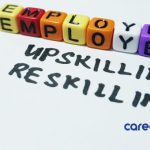At the workplace, anxiety and stress may come in many forms: meeting tight deadlines, juggling work-life balance, dealing with office gossip and politics and meeting your boss’ expectations, just to list a few.
Over time, the pressure builds up but still, you persevere and push on every single day because much is at stake: income, recognition, promotion and often, self-worth.
“Culturally, Singaporeans tend to be hard on themselves, and have expectations that they are meant to be consistent, productive and psychologically resilient at all times,” said Dr Tracie Lazaroo, a clinical psychologist at Inner Light, a centre that provides clinical psychology and therapy services in Singapore.
“They may interpret any stress-related symptoms as a sign of weakness and internalise it as them being incompetent in some way.”
Recognising the signs
Feeling a little stressed is normal. The danger is when the stress exceeds your ability to cope with it. This is when it stops being beneficial and begins causing mental and physical health issues that, in turn, affect your work performance and personal life.
According to Dr Tracie, people often do notice stress symptoms, such as having difficulty winding down after a long workday, sleep issues, gut inflammation, tension, and so forth. However, they may not necessarily attribute this to work, which has detrimental effects on their health.
Stress and anxiety occur at every career stage
While career-related anxiety and stress are often more commonly discussed about employed persons, it encompasses a wider spectrum. People experience anxiety and stress at every stage of their careers.
Even before an individual is gainfully employed, anxiety and stress are felt during the job searching phase. Going for rounds of interviews to meet and impress prospective employers, and then waiting for the call after, takes a toll on a person’s mental health.
“This fear of the unknown can manifest in the fears of inadequacy, fear of rejection, fears of making the wrong decision, fears of financial insecurity and fears of not being able to manage the logistical changes that may come about in the future. Stress can manifest physically and, or psychosocially,” said Dr Tracie.
Here are some of the anxieties and emotions that you might experience at different stages of your career.
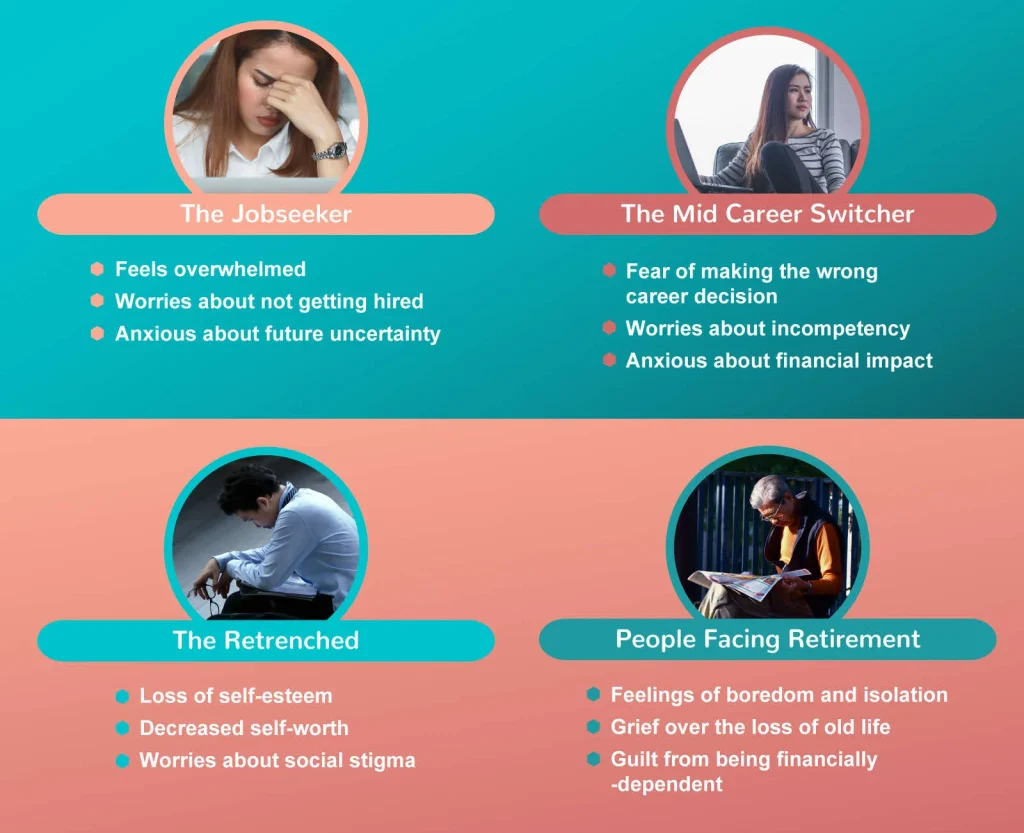
How can we overcome anxiety and stress?
It is impossible to control everything in your career, but that does not mean that you cannot do anything to improve your situation. If career-related anxiety and stress are affecting your life, it is time to act.
The ideal way to cope with career stress is to take strategic steps to confront or to resolve the root cause, like speaking to your boss about the overwhelming workload, shared Dr Tracie.
“However, people may sometimes resort to maladaptive coping strategies such as engaging in emotional eating or scrolling through social media as a form of distraction or dissociation from the problem,” she explained.
“Maladaptive coping can be insidious and not immediately obvious that it is doing more harm than good.”
If you are currently showing signs of career-related anxiety and stress, but are unsure how to deal with them, it is best to seek professional help like speaking to a career coach.
Here is a list of relevant articles compiled on the various stages of workplace stress. Do read them to help you bounce back and feel more positive soon!

Feeling stressed at work can often creep up without much notice, manifesting in subtle ways like sleepless nights, irritability, or constant fatigue. The truth is, recognising that workplace stress is affecting you is the first step towards addressing it. Pushing through without acknowledgment can worsen the cycle, making it harder to cope. By identifying the signs early, you open the door to practical strategies, such as setting clear boundaries, practising mindfulness techniques, or seeking support from trusted colleagues. Understanding how to deal with stress is vital for protecting both your mental health and your long-term career growth. Read on to discover how you might be more affected by workplace stress than you realise.
Mental Health at the Workplace: It’s Time We Started Talking About it
5 Ways to Boost Employee Morale Within Your Workplace
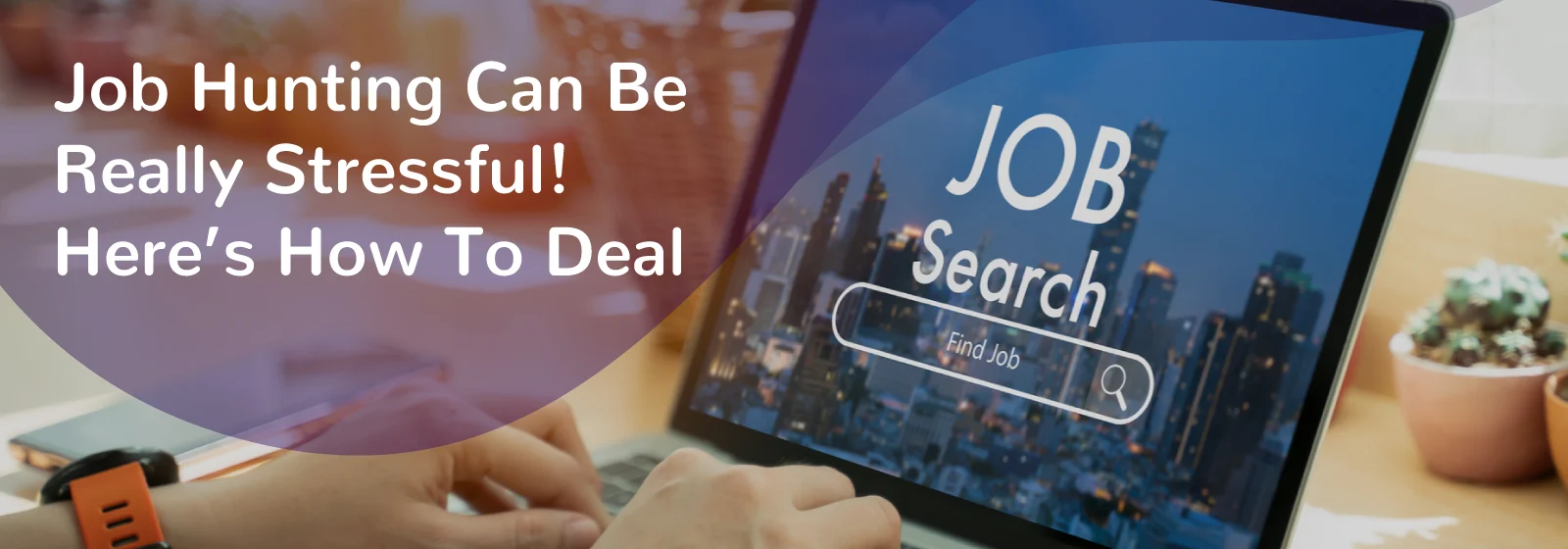
Job hunting can be a daunting process, filled with uncertainty and stress. It’s normal to feel overwhelmed or discouraged during this time. Learn how to manage these negative feelings by focusing on self-care and setting achievable goals. By maintaining a positive outlook and staying organised, you can move ahead with confidence and increase your chances of finding the right opportunity.
Why it’s Easy to Forget Your Mental Health During a Mid-Career Switch
Fresh Grads: Need Help Coping with Job Search Anxiety?
Work-Life Balance: What To Consider When Applying For Jobs
How to Deal With Job Search Stress in Your 40s
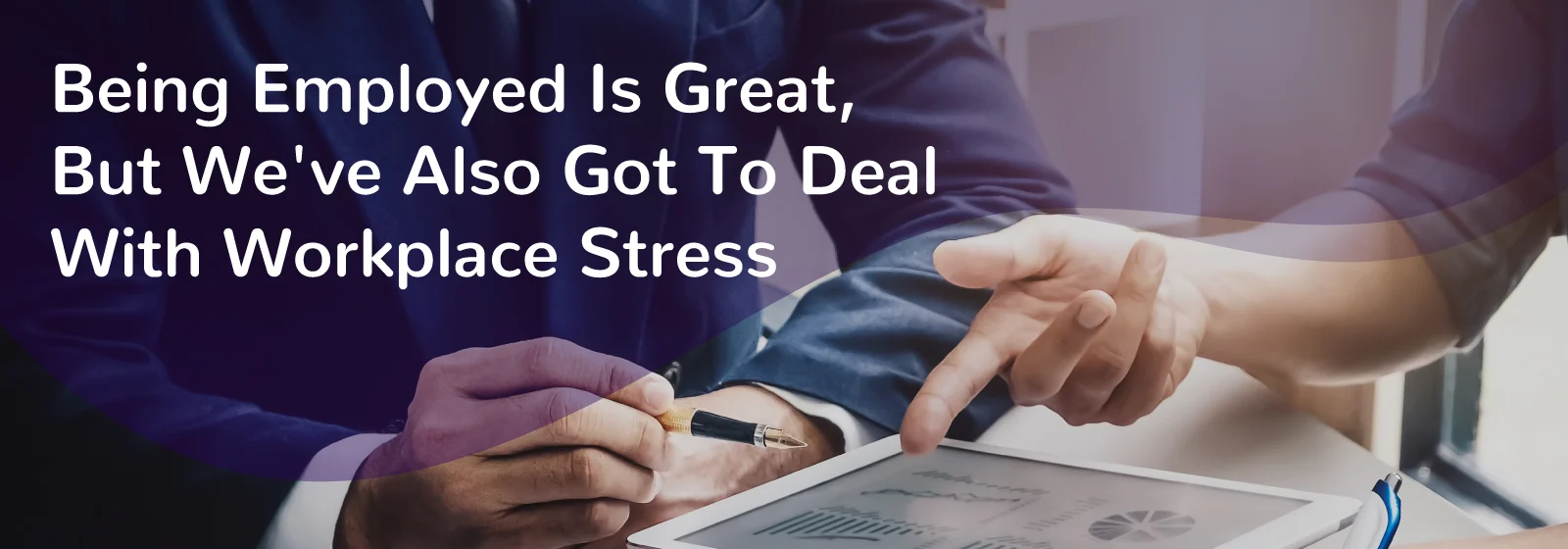
If your job is causing you mental distress, it’s important to take action to protect your well-being. Chronic stress can affect your mental and physical health, leading to burnout and a decreased quality of life. Find out how you can turn things around by identifying the sources of stress and exploring strategies such as setting boundaries, seeking support, or considering a career change. Making a positive change for yourself can lead to a healthier and happier work-life balance.
Stress At Work: 6 Tips For Dealing With A Toxic Workplace
Burnout At Work: Knowing The Signs, And How To Deal With It
Frustrated With Colleagues? Improve Your Relationships With Empathy
Working For Bad Bosses: Your Guide To Handling Toxic Leaders
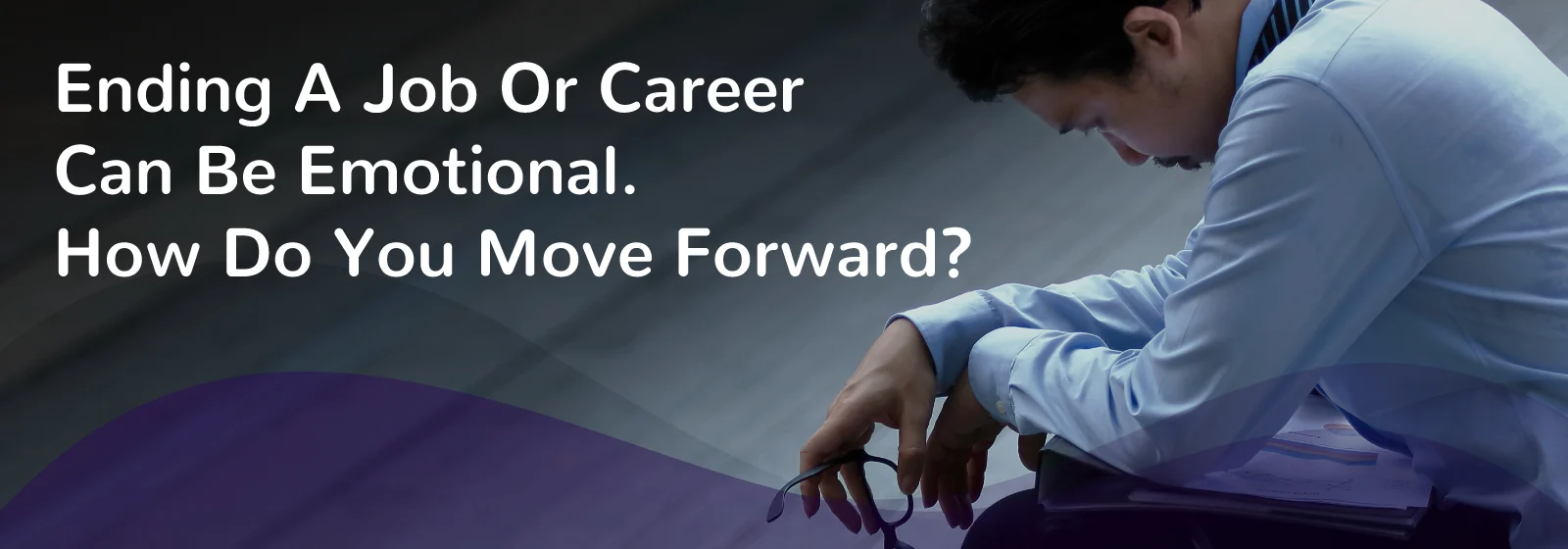
Sometimes our professional journey may not go as planned, leading to unexpected challenges like job loss. It’s important to approach such situations with resilience and optimism. Learn positive ways to recover from job loss, such as updating your skills, networking with industry professionals, and exploring new career paths. With the right mindset and strategies, you can navigate these setbacks and make a strong career comeback.
After a Job Loss: 6 Ways to Keep Calm and Bounce Back

Retirement does not mean that you no longer have the power to do something for yourself. In fact, it can be a time to pursue passions and explore new opportunities that you may not have had time for during your working years. You can look forward to discovering new hobbies, volunteering for causes you care about, or even traveling to places you’ve always wanted to visit. Additionally, there are various options available to stay active and engaged, such as joining clubs, taking up part-time work, or continuing education. Retirement is a new chapter full of possibilities and adventures waiting to be explored.
Planning for Retirement Soon? Here Are Some Things to Consider




